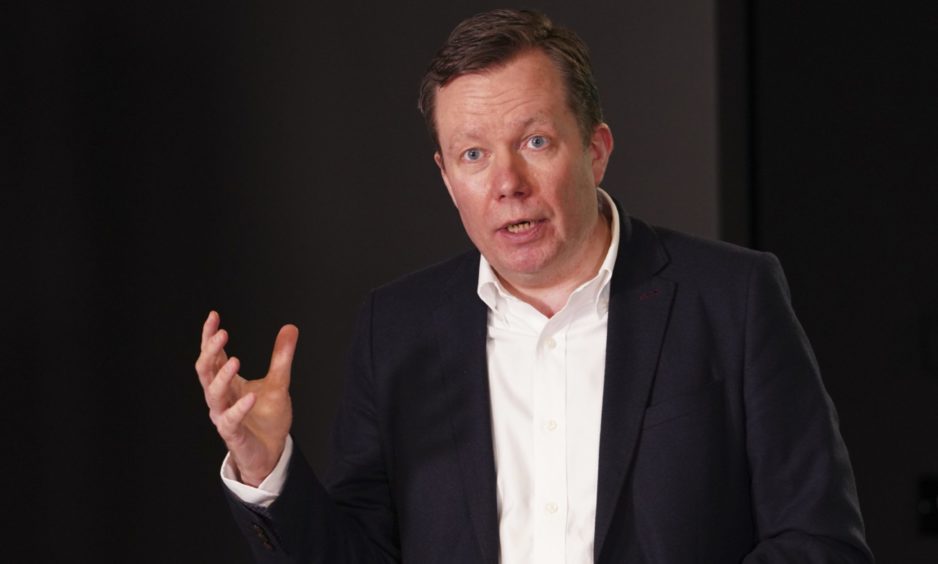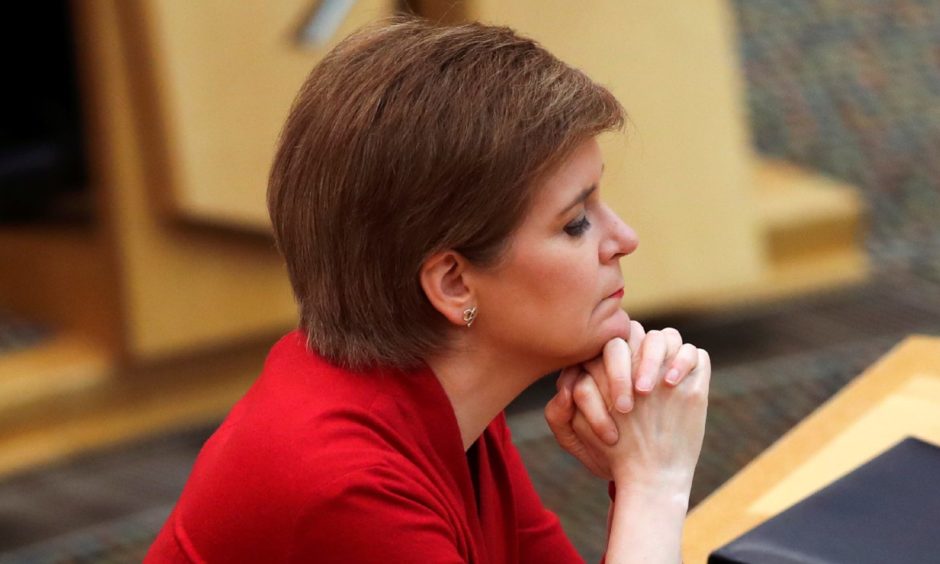The first minister has confirmed parts of the country – including more rural communities – could open up under level two restrictions by the end of April.
Nicola Sturgeon’s phase plan to lift lockdown would see mainland Scotland returning to level three from April 26 “if all goes according to plan”.
However, speaking during her daily coronavirus briefing on Wednesday she revealed there “might be parts of the country – perhaps more rural communities – that are able to go straight to level two”, meaning the “opening up can happen faster”.
The first minister also addressed concerns over the speed of Scotland’s journey out of lockdown.
She said she would be “making it up” if she gave a specific date for the end of Covid-19 restrictions, in contrast to Prime Minister Boris Johnson who has chosen June 21 as a possible date for the end of restrictions in England.
Scottish Conservative leader Douglas Ross accused Ms Sturgeon of being “rattled by the backlash to her plans” and claimed she is “having to furiously backtrack” in suggesting the loosening of restrictions to level two might happen earlier.
The first minister claimed it is “proportionate at the moment” for Aberdeen to remain in full lockdown for another two months, despite the city having the lowest positivity rate in the mainland.
The SNP leader added that it is important to see the impact of starting to ease restrictions “in the face of a virus strain we know is much more transmissible”.
Aberdeen has a positivity rate of around 24 cases per 100,000 people, compared to the Scottish-wide average of 100 cases per 100,000.
In Glasgow, around 142 people per every 100,000 are currently testing positive for the virus.
“We wouldn’t be doing it if we didn’t think it was proportionate. We have a legal obligation to be proportionate in these restrictions.
“We do want to get back to a position as soon as we think it is safe and sustainable where Aberdeen is not at a level of restrictions that might be right for Glasgow, might not be right for it.
“But we are not quite there yet because we’ve got to monitor a bit more carefully and for a bit longer, the impact of starting to ease these restrictions in the face of a virus strain we know is much more transmissible.”
National clinical director Jason Leitch said they “do not know what the new variant will do” and so a gradual approach is necessary over “a number of weeks” before moving to a framework which will make “judgements according to prevalance in localised areas”.
He said this could perhaps be based on regions or in smaller areas.
Professor Leitch added: “I’m delighted the people of Aberdeen and Aberdeenshire have managed to get those numbers down by their behaviour, by the way they’ve conducted themselves, but the lower they get them the more chance they have of moving into a lower level come the end of April.”
Scottish Conservative leader Douglas Ross claimed the first minister is “on the verge of a climb-down over her lockdown plan already”.
He added: “She’s now suggesting the loosening of restrictions to level 2 might happen earlier and, in another masterclass of political spin, trying to rewrite history and claim that was the plan all along.
“When people just want a clear message of hope and certainty, they’re getting less clarity and more confusion from the first minister.”
Ms Sturgeon also answered questions on the second phase of school returns from March 15, including whether senior school students will get a full-time education from that date, and if some will have to wait until after the Easter holidays to go back to face-to-face lessons.
Ms Sturgeon said she would set out the details for the next phase of the return of schools on Tuesday and would not be drawn on the specifics before that.
But added that she wanted to get “as many young people back to school in that second phase from March 15 as possible”.
The first minister said she hopes this will include the remaining primary school year groups and a “significantly increased number of secondary school pupils” who are at least having blended learning.
Scotland has recorded 47 deaths from coronavirus and 798 positive tests in the past 24 hours, which represents a daily test positivity rate of 3.9%.
There are 1,018 people in hospital confirmed to have the virus, down 58 in 24 hours, and there was no change in those in intensive care which remains at 93.
A total of 1,488,077 people have now received a first dose of the vaccine, an increase of 22,836 since yesterday.
In additon, 6,918 people have got their second dose, meaning a total yesterday of 29,754 vaccinations were administered.


